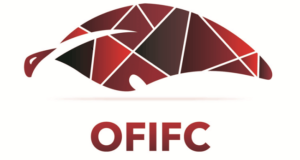Ontario Federation of Indigenous Friendship Centres launches Restoring Indigenous Humanity podcast
 TORONTO (September 27, 2022) — Today, the Ontario Federation of Indigenous Friendship Centres (OFIFC) launches Restoring Indigenous Humanity, a new podcast series exploring challenges faced by the majority of Indigenous people when interacting with the Canadian justice system. The community-driven six-episode series features OFIFC and four Friendship Centres from across the province: Toronto Council Fire, Nogojiwanong Friendship Centre (Peterborough), Brantford Regional Indigenous Support Centre, and United Native Friendship Centre (Fort Frances). The justice-focused podcast also includes perspectives from OFIFC President and Fort Erie Native Friendship Centre Executive Director Jennifer Dockstader.
TORONTO (September 27, 2022) — Today, the Ontario Federation of Indigenous Friendship Centres (OFIFC) launches Restoring Indigenous Humanity, a new podcast series exploring challenges faced by the majority of Indigenous people when interacting with the Canadian justice system. The community-driven six-episode series features OFIFC and four Friendship Centres from across the province: Toronto Council Fire, Nogojiwanong Friendship Centre (Peterborough), Brantford Regional Indigenous Support Centre, and United Native Friendship Centre (Fort Frances). The justice-focused podcast also includes perspectives from OFIFC President and Fort Erie Native Friendship Centre Executive Director Jennifer Dockstader.
The goal of the podcast is to address systemic injustices that require accountability, as well as solutions being created and those still needed. It covers a range of topics, including: advocacy and support for women going through the justice system, the failure to protect victims of intimate partner violence, personal experiences with the justice system, bail and its impact on victims, shelters for victims of domestic violence, the 2SLBGTQ+ experience interacting with binary mainstream justice processes, lack of access to court services in remote areas, and the variety of support programming offered at Friendship Centres and in communities.
Explored in Episode 5, Toronto Council Fire Native Cultural Centre is leading the development of the Spirit Garden located in Nathan Phillips Square in downtown Toronto. Fulfilling the Truth and Reconciliation Commission of Canada’s Call to Action 82, the space and artwork within commemorates the victims and survivors of Canada’s Indian Residential Schools. Cultural programming is offered year-round, including Council Fire’s Indigenous Legacy Gathering on September 29 and 30, 2022.
The show is produced in partnership with Anthroscope Media and is funded by the Law Foundation of Ontario.
Quotes
“The criminal justice system is not working for our people and that must change,” says Jennifer Dockstader, President, Ontario Federation of Indigenous Friendship Centres. “It is vital that Ontarians and the entire legal community understand the complex nature of what Indigenous people experience when dealing with the justice system. This podcast helps us share these important perspectives to a wider audience in our traditional way of oral storytelling.”
“Our community is still dealing with the loss of one of our beloved members, Cileana-ban Taylor, and the lack of justice she and her family have received. The legal community must truly grapple with the findings from the National Inquiry into MMIWG and the nature of violence that Indigenous women, girls, and 2SLGBTQQIA people experience,” says Ashley Safar, Executive Director, Nogojiwanong Friendship Centre. “We hope that sharing this story helps in the process of healing and improves the chances of Justices making decisions that do not place the public at risk.”
“This podcast and our episode are part of the steps the Brantford Regional Indigenous Support Centre is taking to provide education to its community on the importance of closing the gaps for Indigenous people that are involved in the justice system,” says Trevor Martin, Executive Director, Brantford Regional Indigenous Support Centre. “It is our goal to positively impact the lives of our community and take the position that by supporting and empowering our youth, we can assist in the continued healing and growth of our community for generations to come.”
“The Restoring Indigenous Humanity podcast project allows Friendship Centres to focus on the realities that our urban Indigenous community faces within the justice system,” says Sheila McMahon, Executive Director, United Native Friendship Centre.
The Ontario Federation of Indigenous Friendship Centres
The Ontario Federation of Indigenous Friendship Centres (OFIFC) represents the collective interests of 29 Friendship Centres in cities and towns across the province. Friendship Centres are places for community members and Indigenous people living in urban spaces to gather, connect with one another and receive culturally based services. Friendship Centres improve the lives of urban Indigenous people by supporting self-determined activities which encourage equal access to, and participation in, Canadian society while respecting Indigenous cultural distinctiveness.
Attachment
Dave Bennett
Xposure PR
905 339 6668
dave@xposurepr.com


